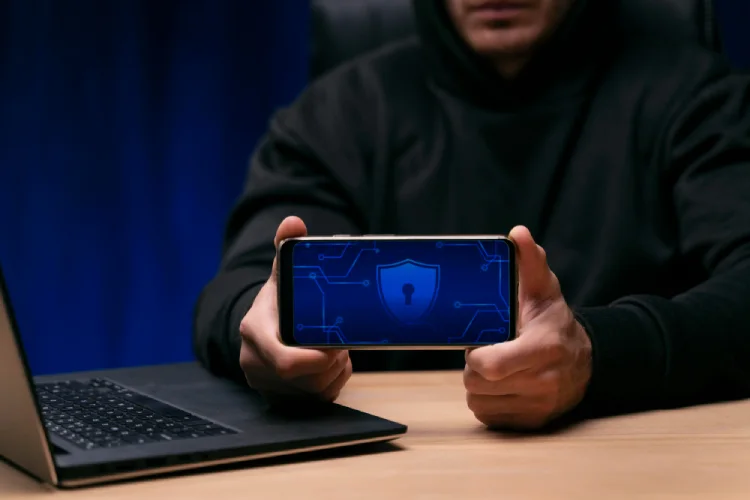Acquiring the skill of communication is extremely important as it influences all aspects of our lives. Whether we’re striving to meet work deadlines or building strong relationships with friends, family, or significant others, effective communication is key. Unfortunately, many issues stem from poor communication, and it’s not typically taught in school. Rather, we have to learn it from our environment. However, unless we have the good fortune of being surrounded by excellent communicators, we may develop negative communication habits. Therefore, it’s helpful to consider some techniques for improving your communication skills.
Here are some of the ways to improve your communication skills:
1. Spend time alone just thinking.
To make progress, assessment is necessary. Take some time for introspection and evaluate your performance. How effective are you at communicating at work? What areas could use improvement? Like how school grades serve as a measure of performance, assess your own communication skills to identify strengths and weaknesses. Even if you excel at communication, it is important to regularly check and improve. Celebrate your accomplishments to encourage growth. Dedicate some alone time to reflect on your strengths and areas for growth.
2. Learn the basics of non-verbal communication.
A study has revealed that 55% of the perception an audience has towards a presentation is based on nonverbal communication. This suggests that physical cues hold more weight than spoken words, highlighting the significance of prioritizing nonverbal communication. Becoming proficient in nonverbal cues and signals can help prevent misunderstandings and demonstrate interest to those around you. In a professional setting, it’s essential to pay attention to your facial expressions and body language while conversing with someone.
The first impression you make on others is determined by your nonverbal signals. Therefore, when meeting someone for the first time, it’s crucial to maintain eye contact, minimize hand gestures, and adopt a proper posture. Adequate posture is necessary to communicate effectively and persuasively. It’s best to avoid slouching, crossing your arms, or appearing smaller than you are, as these are all unfavorable habits. Instead, it’s advisable to take up space, maintain eye contact, and utilize traditional mannerisms if appropriate. While it may seem old-fashioned, this technique is still effective.
3. Overcommunicate.
We often deceive ourselves into believing that our communication is clear when it may not be. In a study conducted at Stanford University, half of the participants were asked to tap the rhythm or melody of 120 well-known songs while the other half had to guess the name of the song being tapped. The tappers expected half of their songs to be correctly guessed, but only 3% were. This study taught us that what we believe is clear communication might not be so. However, techniques such as storytelling, hand gestures, and other visual cues can help. To communicate more effectively, it’s best to offer multiple perspectives on the same issue to give others a comprehensive understanding.
4. Avoid relying on visual aids.
Steve Jobs instituted a policy at Apple that prohibited the use of PowerPoint presentations, and similarly, Facebook’s Sheryl Sandberg has banned the use of PowerPoint as well. Both leaders discovered that using PowerPoint presentations could impede communication rather than help it. In order to effectively convey your message to your audience, it is recommended to use language, a captivating story, and nonverbal cues. The use of visual aids should be avoided unless absolutely necessary.
5. Engage the audience in discussion
Regardless of how captivating the speaker may be, every audience has a limited amount of time to stay focused. To enhance your communication abilities, aim to make your presentations and conversations more engaging. You can achieve this by involving the audience in the process - for example, by posing questions, urging them to contribute their thoughts during a brainstorming session, or simply by asking hypothetical questions to generate interest.
6. Start and end with key points
Referring to the earlier mentioned “tappers and listeners” study, it is highly important to emphasize the importance of effective communication. To ensure that the audience comprehends the main concepts, it is recommended to repeat essential points at the beginning and end of a presentation. Another strategy to reinforce key ideas is by providing a one-page document to the attendees, which they can refer to during the presentation to reflect on critical concepts.
7. Master the art of timing
Stand-up comedians are skilled communicators, despite some of their jokes being unsuitable for the workplace. Their ability to master timing enables them to create captivating comedy shows lasting up to 90 minutes, as seen in Chris Rock and Dave Chappelle’s performances. Like all successful communicators, adept comedians can gauge their audience’s reactions and determine when to shift to new topics or reiterate existing ones.
8. Express your edited thoughts
If you disagree with someone, let them know. If you think someone has done a good job or is right about something, offer praise. If you have valuable input to share, don’t hesitate to share it. Regular communication is essential to improve your communication skills. Be mindful of what you say and how you say it. Don’t express raw thoughts to those who are important to your success. Instead, take time to think about your opinions and ideas before sharing them. However, it’s still important to share your opinions with those who can affect your success. Take your time when you speak and make sure that your opinions are expressed constructively. By doing so, you can enhance your communication skills in the workplace.
9. Body Language is as important as the words you speak.
Body language is mostly automatic and reflects our emotional state. However, it can also unintentionally reveal our true feelings, such as a lack of confidence. But, the good news is that we can control our body language by sitting up straight, spreading our shoulders, or even doing a “power pose” before important meetings. By improving our body language, we not only enhance our communication skills but also gain confidence. Other important factors include maintaining eye contact and an open stance when conversing with others.
10. Write out what you want to say before you speak.
By taking the time to fully process our thoughts, we can improve our conversations, much like allowing concrete to cure. Writing our thoughts by hand forces us to slow down, leading to better comprehension of our message and a chance to review our thoughts. This process enhances our ability to think more clearly and edit our words before sharing them with others, resulting in more effective communication. Writing down our views before sharing them with coworkers can help us improve our communication skills.
11. Master talking on the phone.
The use of phones has evolved beyond its primary purpose of making calls, with Millennials preferring texting over talking. Nevertheless, it is still crucial to demonstrate your ability to handle phone conversations effectively as it remains an important aspect of communication. Given that the other person cannot see your face or read an emoji, paying attention to your tone of voice is crucial to convey respect and decency when chatting with a coworker or customer.
Handling unplanned calls can be challenging, especially when the caller is expressing negative emotions. It is essential to stay composed, show empathy, and let the caller know that their situation is being heard and taken seriously. For customer service or public relations, it is crucial to understand the caller’s story and take necessary actions to address their concerns.
In today’s world where customers can share their negative experiences via social media, having a plan to respond to dissatisfied customers is vital for protecting the brand’s reputation.
12. Get comfortable speaking extemporaneously
Lawyers often engage in impromptu speaking when presenting a case to a judge. This means that they prepare a list of topics they want to address but do not memorize their entire speech. This approach enables them to cover all relevant matters and tailor their communication style based on audience feedback or questions. Business communicators should consider adopting extemporaneous speaking, even though it requires practice, as it can help them communicate more effectively and connect with their audience.
13. Learn how to listen (Really listen)
Paying close attention while listening is a fundamental aspect of communication, and could even be considered the most essential one. When communicating, it’s not enough to solely concentrate on expressing oneself eloquently; it’s equally important to listen to others. To some extent, listening is a talent that improves naturally as a person hones their communication skills. It becomes evident that to communicate successfully, it’s necessary to comprehend the other person’s perspective and message. Nevertheless, it still requires deliberate attention.
It is important to be aware of both verbal and nonverbal cues when conversing with others. Nonverbal expressions and body language can give insight into a person’s emotions and reactions during communication. Strengthening communication skills is essential for success and can be achieved by utilizing simple techniques. By improving communication skills, individuals can reap the benefits of better communication in both personal and professional settings.
14. Have a full grasp of who you are talking to.
It is important to identify your audience and tailor your tone and approach accordingly in order to establish a stronger connection with them. Your language and delivery should differ depending on the profile of your listeners, such as addressing a group of medical professionals versus a group of creative writing students. Prior to beginning your speech, take some time to evaluate your audience. This will aid you in refining your presentation and generating an energetic flow that will hold your audience’s interest. Effective communication requires proficiency and self-assurance, both of which can be honed through practice. Start enhancing your abilities as soon as possible to achieve your desired employment!
As a corporate leader or really in whatever position you hold, one of the most valuable talents you can develop is the ability to communicate properly. Remember to use both nonverbal and vocal cues when communicating. To ensure that the material of the conversation resonates with the audience, pay attention to what others have to say and overcommunicate in unique ways.

 Essential Tips To Safeguard Your Online Money
Essential Tips To Safeguard Your Online Money